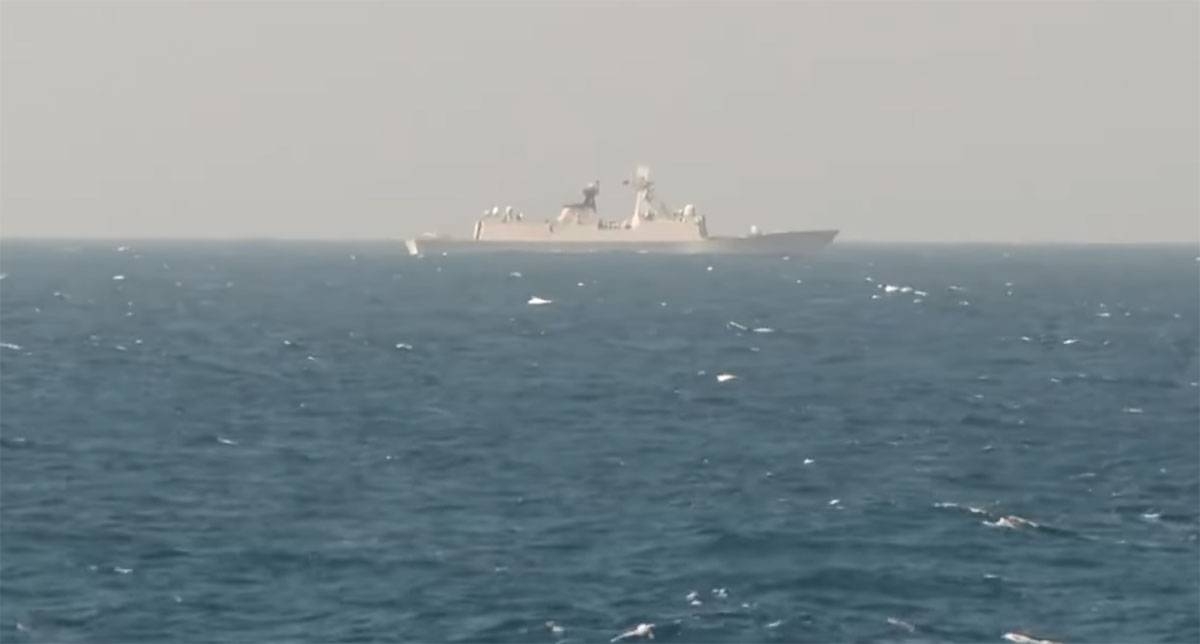At least six Chinese maritime militia (CMM) ships were monitored inside Ayungin Shoal in the West Philippine Sea (WPS), while another ship from the China Coast Guard (CCG) was spotted shadowing Philippine Coast Guard (PCG) vessels. This activity raises concerns about potential rotation and resupply missions in the area.
The CCG ship, numbered 5205, followed the BRP Cabra and BRP Sindangan as they passed Escoda (Sabina) Shoal en route to Ayungin. Filipino troops are stationed on the grounded BRP Sierra Madre in Ayungin Shoal. United States maritime security expert Ray Powell provided insights on this matter.
Earlier in the day, China deployed six CMM ships in anticipation of the rotation and resupply mission, although the Philippines has not confirmed this. Powell noted that the CMM ships relocated west of the shoal, indicating their awareness that the resupply mission had not yet begun but still expecting action soon.
At the beginning of the year, the South China Sea Probing Initiative, a research network established by Beijing, announced that it expected the Philippines to conduct a rotation and resupply mission “in the coming days.” However, the mission that took place on January 2 turned out to be a search-and-rescue operation carried out by the BRP Cabra.
Powell also mentioned that the SCS Probing Initiative had previously announced a rotation and resupply mission, but their prediction was off by about 12 days. During the previous mission, a CCG ship collided with a Philippine vessel, and Philippine ships and resupply boats faced reckless and dangerous harassment by CCG and CMM vessels.
Powell speculated that China’s deployment of its blockading force from Mischief Reef indicates that the Chinese leaders believe another resupply mission is imminent. China is preparing to aggressively interdict it while attempting to reshape the messaging around their blockade.
The constant messaging from Beijing suggests that Manila’s assertive transparency campaign, aimed at exposing China’s aggression in the West Philippine Sea, has been taking a toll on China’s reputation. China has yet to come up with an effective response to counter these efforts.
China claims that the root cause of the incidents in Ayungin is the Philippine government’s defiance of a consensus regarding the transportation of large-scale construction materials to BRP Sierra Madre, which China believes is for the purpose of permanent occupation of the reef.
Herman Tiu Laurel, president of the Manila-based think tank Asian Century Philippines Strategic Studies Institute (ACPSSI), stated that China has consistently allowed humanitarian supply deliveries but not construction and rebuilding materials. China is exercising its sovereign police powers over its claim and is not concerned with messaging or propaganda issues.
National Security Adviser Secretary Eduardo Año clarified that the joint maritime activities between the Philippines and the United States in the West Philippine Sea are conducted within the country’s exclusive economic zone (EEZ) and are consistent with international law, particularly the United Nations Convention on the Law of the Sea (Unclos).
In conclusion, the continued presence of Chinese maritime militia and coast guard ships in the West Philippine Sea raises concerns about rotation and resupply missions. The Philippines’ assertive transparency campaign has been affecting China’s reputation, leading to China’s desperate attempts to reshape the messaging around their blockade. The situation remains tense, and international law will continue to play a crucial role in determining the actions and responses of the involved parties.







